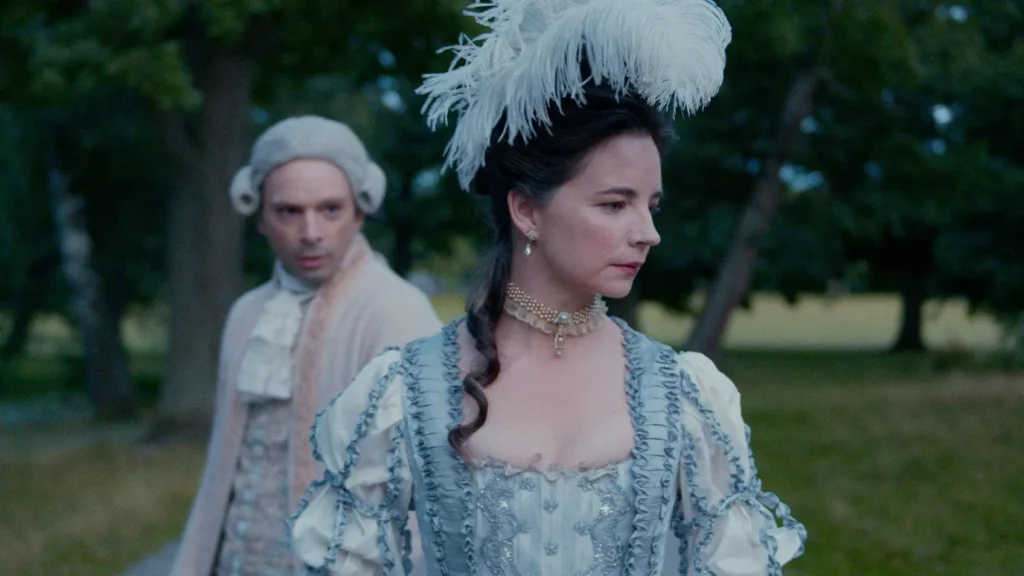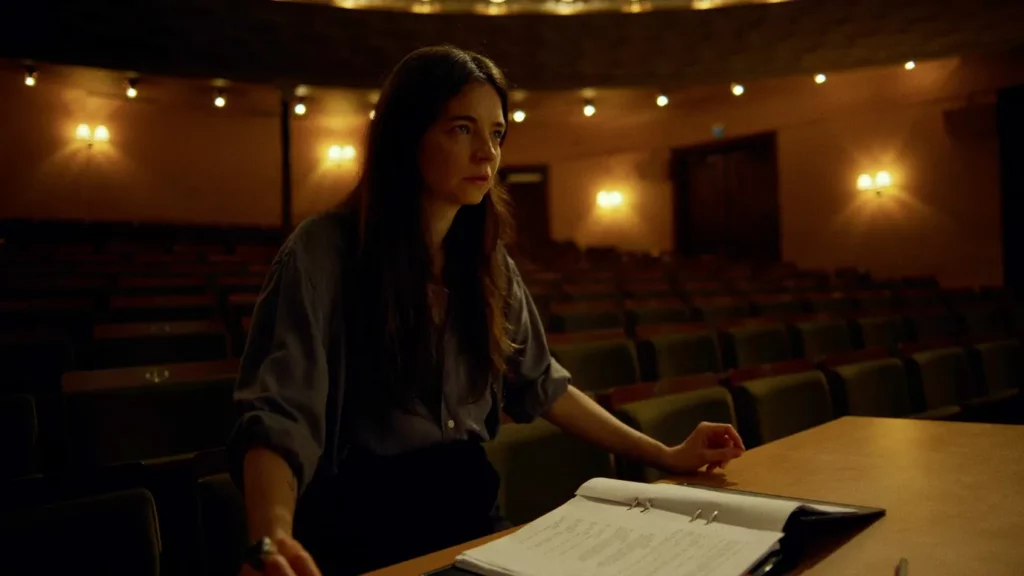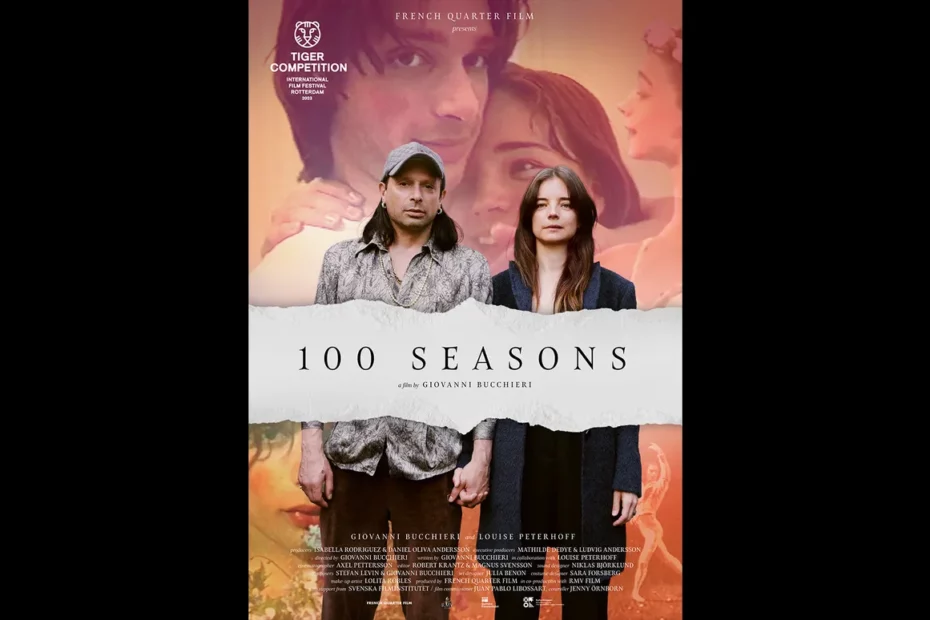100 Seasons (100 Årstider) is the first feature by Giovanni Bucchieri. He described the Monday pre-premiere in Stockholm that it would happen “after a lifetime in the making.” Possibly, unintentionally, that strikes right into the film’s central theme. The film begins with a recording of Giovanni dancing at the Royal National Opera. Then, there is a cut to Giovanni mimicking the dance at home while watching the video screened on a blanket on the wall. Following this striking opening shot, we see another memory when Giovanni talks about the unfathomable concept of his heart pounding. He asserts, ” What’s so bloody amazing is that it keeps beating. It’s never going to bloody well stop. My heart is never going to stop.”
Thus, from the outset, it’s clear that we are dealing with a story where life is literally at stake and where each movement seems to be an attempt to avoid the inevitable. The working title was “Let’s do some living in the afterlife.” Giovanni has bipolar disorder, which he constantly grapples with. We see him rehearsing what to tell his doctor and watch him walking through a hospital corridor, looking less than well. After being thrown into the film, the structure of the film becomes more apparent. It revolves around Giovanni’s first love, Louise (Louise Peterhoff), and the film contains numerous camcorder footage of them together, as well as more recent scenes.

These videos are sometimes funny and sweet but occasionally theatrical and self-referential. At one point, Giovanni and Louise perform a scene in French, wearing 18th-century costumes. Suddenly, Louise asks why they have to speak in French and that she is tired of being so dramatic. She also adds that Giovanni’s French is really bad. In the present time, Louise is directing a ballet rendition of Romeo and Juliet. Her interpretation meets resistance from the cast, and when the head of the theatre asks how she regards the play, she calls It Shakespeare’s worst and says that the couple acts like children. Meanwhile, Giovanni fights his own frustrations with or without his medications.
Will the heart keep pounding for 100 Seasons?
100 Seasons is a challenging film to review, at least if you want to make it justice. In that way, we are in the same universe as in the Abele brothers’ Troubled Minds, however different those films may be. What they do share is a fresh, committed look at a difficult subject matter that has been dealt with in a clumsy or exploiting manner in so many other films. Bucchieri’s film is decidedly more interior, and considering the plethora of footage containing himself at different stages of his life, it could easily have slipped into lazy narcissism. The fact that it doesn’t is a testimony to the film’s major achievement, aided immensely by Axel Pettersson’s lensing.

It is refreshing to watch a film in 2023 which is not afraid to take itself seriously but, at the same time, keeps the seriousness in check with humour and auto-criticism that doesn’t come off as empty posing. Some scenes may go on for too long, and some side intrigues could have been dropped, but those are minor complaints on such a rich film, however sprawling it might be. The music by the director and Stefan Levin plays a major role in the atmosphere as well. Music composition is one of Bucchieri’s several talents, and he wrote the song The War Is Over for Anna Odell’s The Reunion (Återträffen 2013).
100 Seasons is, in many ways, a film with and about performances, whether it’s for the camera or in life. The word life is the operative one, and this is a celebration of life and art that feels unusually real and poignant, and that is said by someone who is typically allergic to this kind of film. Also, the simple but subtle ending is the most beautiful one you will see in any film this year.

